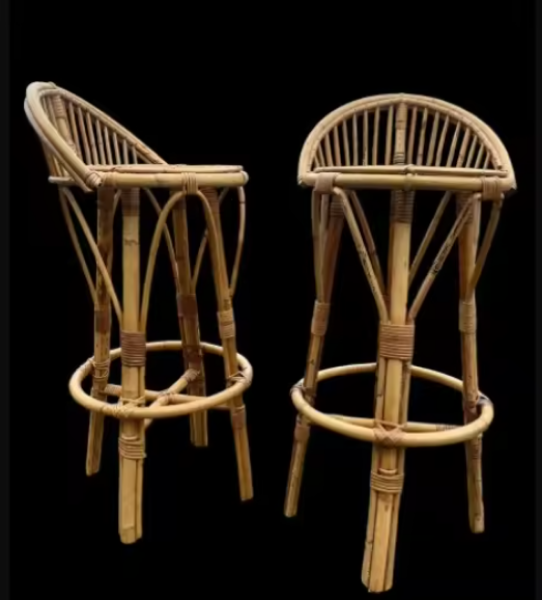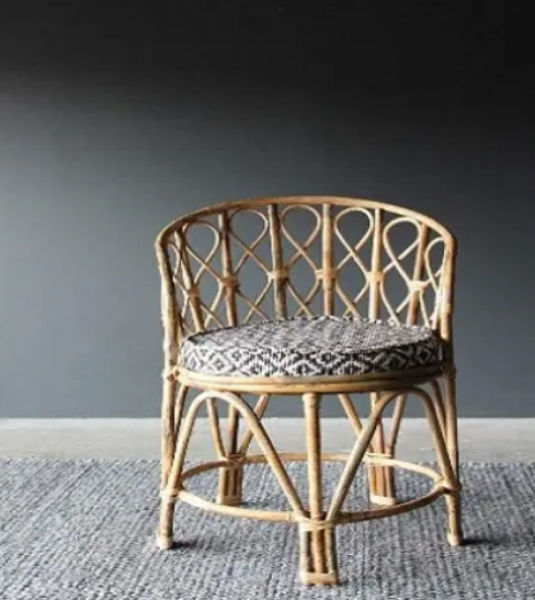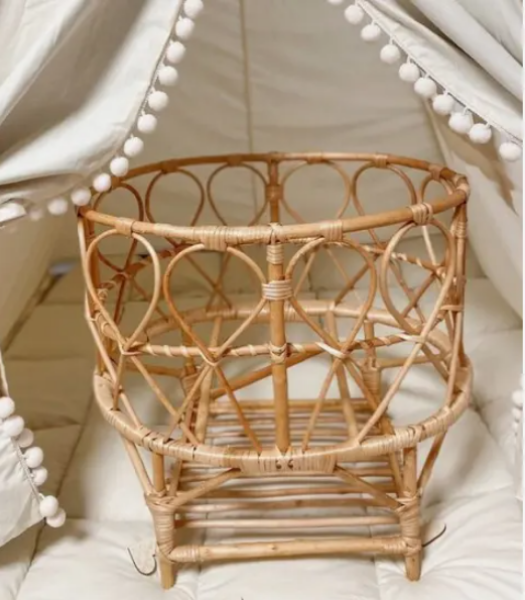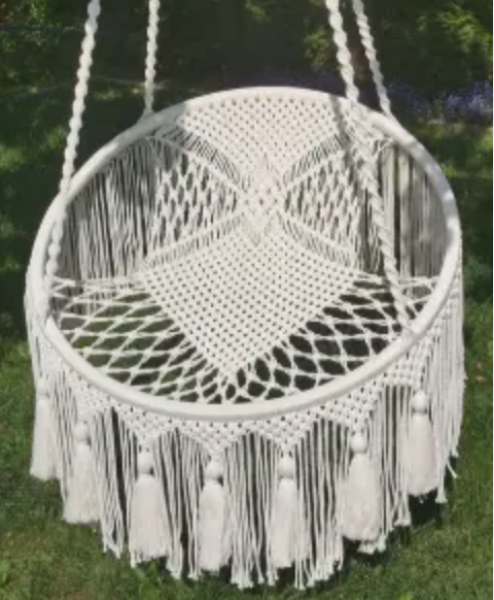Have you ever walked into a room and felt immediately at ease, as if the furniture itself was welcoming you? That’s the magic of a rattan chair. With its natural texture and elegant design, a rattan chair can transform any space into a cozy haven. But what makes rattan chairs so special, and why are they a timeless choice for both indoor and outdoor furniture? Let's explore the world of rattan chairs and uncover their many benefits, styles, and care tips.
What is a Rattan Chair?
A rattan chair is a piece of furniture made from rattan, a type of vine that grows in tropical regions. Rattan is prized for its strength, flexibility, and natural beauty, making it an ideal material for crafting durable and attractive furniture. Rattan chairs are known for their intricate weaves and can be found in a variety of styles, from classic to contemporary.
Rattan is often confused with wicker, but they are not the same. Wicker is a technique of weaving materials to create furniture, while rattan is the material itself. Rattan vines are cut into poles and then steamed to make them pliable for weaving. This process allows artisans to create beautifully detailed patterns and designs, resulting in furniture that is both functional and aesthetically pleasing.
Rattan chairs can be used in various settings, from living rooms and bedrooms to patios and gardens. Their versatility and timeless appeal make them a popular choice for homeowners and designers alike. Whether you prefer a traditional rattan rocking chair or a sleek, modern rattan dining chair, there is a style to suit every taste and decor.
The History of Rattan Furniture
Rattan furniture has a rich history that dates back to ancient times. It was first used by the Egyptians, who crafted various household items from this versatile material. Over the centuries, rattan furniture spread across the world, becoming particularly popular in Europe during the 19th century. The appeal of rattan lies in its combination of durability and elegance, making it a favorite for both indoor and outdoor settings.
In the 19th century, rattan furniture became highly sought after in Europe, particularly in Britain. The British Empire's expansion into tropical regions introduced them to rattan, and soon it became a fashionable material for furniture. The Victorians appreciated rattan for its lightness and exotic appeal, and it quickly became a staple in conservatories and sunrooms.
By the 20th century, rattan furniture had gained popularity in the United States as well. The mid-century modern movement embraced rattan for its organic shapes and natural textures. Designers like Paul Frankl and Donald Deskey incorporated rattan into their iconic furniture pieces, solidifying its place in American homes.
Today, rattan furniture continues to be a popular choice for its timeless beauty and sustainable qualities. As people become more environmentally conscious, the demand for eco-friendly materials like rattan has increased. This resurgence in popularity has led to a variety of contemporary rattan designs, blending traditional craftsmanship with modern aesthetics.
Benefits of Rattan Chairs
Durability and Strength
Rattan is incredibly strong and can withstand a lot of wear and tear. This makes rattan chairs a great investment, as they can last for many years with proper care. The natural resilience of rattan makes it resistant to splintering and breaking, even with regular use.
Aesthetic Appeal
The natural look of rattan adds warmth and texture to any room. Its neutral tones blend well with various decor styles, from rustic to modern. The intricate weaving patterns and organic shapes of rattan chairs can serve as stunning focal points in your home, adding a touch of elegance and sophistication.
Lightweight and Portable
Rattan chairs are lightweight, making them easy to move around. This is particularly useful for rearranging furniture or for outdoor settings where you might need to move chairs frequently. Despite their light weight, rattan chairs are incredibly sturdy and can support a significant amount of weight.
Eco-Friendly
Rattan is a sustainable material that grows quickly and requires minimal processing. By choosing rattan furniture, you are supporting environmentally-friendly practices. Rattan harvesting has a low impact on the environment, as it does not require the use of heavy machinery or chemicals. Additionally, rattan is biodegradable, making it an eco-friendly choice for conscious consumers.
Comfort
Rattan chairs are not only beautiful but also comfortable. The natural flexibility of rattan provides a slight give when you sit, making it a comfortable seating option. Many rattan chairs also come with cushions, adding an extra layer of comfort.
Different Styles of Rattan Chairs
Traditional Rattan Chairs
These chairs feature intricate weaves and classic designs that have stood the test of time. They are perfect for adding a touch of elegance to any room. Traditional rattan chairs often have ornate details and curvaceous shapes, reflecting the craftsmanship and artistry of the weavers.
Modern Rattan Chairs
Modern rattan chairs combine the natural beauty of rattan with contemporary design elements. They often feature sleek lines and minimalistic designs, making them ideal for modern homes. The simplicity of modern rattan chairs allows them to blend seamlessly with other modern furnishings, creating a cohesive and stylish look.
Outdoor Rattan Chairs
Designed to withstand the elements, outdoor rattan chairs are treated to resist moisture and UV damage. They are perfect for patios, gardens, and poolside areas. Outdoor rattan chairs often come with weather-resistant cushions and finishes, ensuring they remain in excellent condition even when exposed to the elements.
Indoor Rattan Chairs
Indoor rattan chairs are designed with comfort and style in mind. They can be used in living rooms, dining areas, bedrooms, and more. Indoor rattan chairs are often paired with plush cushions and throws, creating a cozy and inviting seating option.
Rattan Rocking Chairs
Rattan rocking chairs offer a nostalgic charm and are perfect for relaxing in. Whether placed in a nursery or on a porch, they provide a gentle rocking motion that can soothe and comfort. The combination of rattan's natural beauty and the soothing motion of a rocking chair makes it a timeless addition to any home.
Rattan Lounge Chairs
Rattan lounge chairs are designed for ultimate relaxation. With their reclining features and comfortable cushions, they are ideal for lounging by the pool or in a sunroom. The ergonomic design of rattan lounge chairs provides excellent support for your back and legs, making them perfect for long periods of relaxation.
Rattan Dining Chairs
Rattan dining chairs add a touch of elegance to any dining area. They are available in various styles, from simple and modern to ornate and traditional. Rattan dining chairs are often paired with glass or wooden dining tables, creating a sophisticated and inviting dining space.
How to Incorporate Rattan Chairs into Your Home
Living Room Ideas
Rattan chairs can be a focal point in your living room. Pair them with cozy cushions and throws to create a welcoming seating area. Combine them with other natural materials like wood and jute for a cohesive look. You can also mix and match different styles of rattan chairs to add visual interest and depth to your living room decor.
Dining Area Tips
Use rattan chairs as dining chairs to add a touch of rustic charm to your dining area. Mix and match with upholstered chairs for an eclectic setup. A rattan dining set can also create a cohesive, stylish look. Consider using a rattan dining bench for a unique and casual seating option.
Bedroom Styling
In the bedroom, a rattan chair can serve as a stylish accent piece or a functional seating option. Place one in a corner with a reading lamp and a small table to create a cozy reading nook. A rattan chair can also be used as a statement piece at the foot of the bed or in front of a vanity.

Outdoor Spaces
Rattan chairs are perfect for outdoor settings. Arrange them around a fire pit or an outdoor table to create a comfortable and stylish seating area. Add weather-resistant cushions and throws for extra comfort. Consider using a rattan daybed or lounge chair to create a luxurious outdoor retreat.
Home Office
Incorporate a rattan chair into your home office for a touch of natural elegance. A rattan desk chair can provide both comfort and style, making your workspace more inviting. Pair it with a wooden desk and some potted plants for a cohesive and calming office environment.
Entryway
A rattan chair in the entryway can serve both as a functional seating option and a decorative accent. Use it as a place to sit while putting on or taking off shoes. Add a small side table and a mirror to create a welcoming and stylish entryway setup.
Bathroom
Yes, even the bathroom can benefit from the addition of a rattan chair. Use a rattan chair as a stylish place to drape towels or to sit while getting ready. Its natural texture and light color can add a spa-like feel to your bathroom.
Rattan Chairs for Outdoor Spaces
Outdoor rattan chairs are designed to withstand the elements. They are often treated to resist moisture, UV damage, and mildew. This makes them ideal for patios, gardens, and poolside areas. To enhance the durability of outdoor rattan chairs, consider using protective covers when they are not in use and storing them indoors during harsh weather conditions.
When choosing rattan chairs for outdoor use, it's important to select those made from synthetic rattan or treated natural rattan. Synthetic rattan, also known as resin wicker, is made from polyethylene and is highly resistant to weather conditions. It mimics the look of natural rattan but offers greater durability and ease of maintenance.
Outdoor rattan chairs come in various styles, including dining chairs, lounge chairs, and sectional sofas. They can be paired with outdoor cushions and accessories to create a comfortable and stylish outdoor living space. Consider adding outdoor rugs, lanterns, and potted plants to enhance the ambiance and make your outdoor area feel like an extension of your home.
Regular maintenance is essential to keep your outdoor rattan furniture in top condition. Clean the chairs regularly to remove dirt and debris, and apply a protective finish to prevent fading and cracking. During the off-season, store your rattan furniture in a dry, sheltered area to protect it from harsh weather conditions.
Caring for Your Rattan Chair
Cleaning Tips
Regular cleaning is essential to keep your rattan chair looking its best. Dust the chair regularly and wipe it down with a damp cloth. For a deeper clean, use a mild soap solution and a soft brush. Avoid using harsh chemicals or soaking the chair in water, as this can damage the material.
If your rattan chair has cushions, be sure to clean them according to the manufacturer's instructions. Most cushions can be spot cleaned or machine washed. Keep the cushions dry to prevent mold and mildew growth.
For outdoor rattan chairs, it's important to clean them more frequently, especially if they are exposed to the elements. Use a hose to rinse off dirt and debris, and let the chair air dry completely before using it again. Applying a protective finish to your outdoor rattan furniture can help prolong its life and maintain its appearance.
Repair and Maintenance
Inspect your rattan chair regularly for any signs of wear or damage. Small cracks or breaks can be repaired with wood glue or a rattan repair kit. To preserve the finish, apply a thin layer of furniture wax or oil every few months. This will help protect the rattan from drying out and becoming brittle.
If you notice any loose or frayed weaving, you can repair it by carefully reweaving the rattan strands. Use a needle or a small tool to weave the loose ends back into place. For larger repairs, consider consulting a professional who specializes in rattan furniture repair.
Weather Protection
If you use your rattan chair outdoors, protect it from harsh weather conditions. Use covers when the chair is not in use and store it indoors during extreme weather. Treat the rattan with a weather-resistant finish to prolong its life.
Synthetic rattan, while more resistant to weather conditions, still benefits from regular maintenance and protection. Cover your synthetic rattan furniture when not in use and clean it regularly to keep it looking new.
Storage Tips
Proper storage is crucial for maintaining the longevity of your rattan furniture. During the winter months or periods of extended inactivity, store your rattan chairs in a cool, dry place. Avoid placing them in areas with high humidity or direct sunlight, as these conditions can cause the rattan to deteriorate.
If you don't have indoor storage space, consider using a weatherproof storage shed or a durable outdoor furniture cover. Make sure the cover is breathable to prevent moisture buildup, which can lead to mold and mildew growth.
Preventing Damage
To prevent damage to your rattan chairs, avoid placing them in direct sunlight for extended periods. UV rays can cause the rattan to fade and become brittle over time. If your rattan furniture is exposed to sunlight, consider using UV-protective finishes or treatments to minimize damage.
Avoid placing heavy objects on your rattan chairs, as this can cause the material to crack or break. Encourage proper usage by providing adequate seating options for your guests.
Choosing the Right Rattan Chair
When selecting a rattan chair, consider the intended use and location. Indoor rattan chairs can focus more on style and comfort, while outdoor rattan chairs should be more durable and weather-resistant. Also, consider the style and design that will best complement your existing decor.
Assessing Quality
When shopping for rattan furniture, pay attention to the quality of the materials and craftsmanship. Look for chairs made from high-quality rattan with tight, even weaving. The joints and connections should be sturdy and secure, ensuring the chair's stability and durability.
Comfort and Ergonomics
Comfort is a key factor when choosing a rattan chair. Consider the chair's design and how it supports your body. Look for chairs with comfortable seating angles, backrests, and armrests. Adding cushions can enhance the comfort of your rattan chair, making it more inviting for long periods of use.
Style and Aesthetics
Rattan chairs come in various styles, from traditional to modern. Choose a style that complements your home decor and personal taste. Consider the color and finish of the rattan, as well as the design elements, such as weaving patterns and shapes.
Budget Considerations
Rattan chairs are available at a wide range of price points. Determine your budget and look for chairs that offer the best value for your money. While higher-quality rattan chairs may have a higher upfront cost, their durability and longevity make them a worthwhile investment.
Testing Before Buying
If possible, test the rattan chair before making a purchase. Sit in the chair to assess its comfort and stability. Check for any signs of wobbling or weakness. A well-made rattan chair should feel sturdy and comfortable, providing a reliable seating option for your home.
Rattan Chair Trends
Rattan furniture is making a comeback in modern interior design. Current trends include combining rattan with other natural materials like wood and metal. Mixing different textures and styles can create a unique and eclectic look. Additionally, painted and dyed rattan chairs are becoming popular, offering more color options and versatility in home decor.
Bohemian and Eclectic Styles
Rattan chairs are a staple in bohemian and eclectic interior design. Their natural texture and organic shapes fit perfectly with the relaxed and free-spirited aesthetic of these styles. Combine rattan chairs with vibrant textiles, macramé, and potted plants to create a cozy and inviting space.
Scandinavian Minimalism
Rattan furniture is also popular in Scandinavian minimalist design. The simplicity and natural beauty of rattan complement the clean lines and neutral color palette of Scandinavian interiors. Pair rattan chairs with light wood furniture and soft textiles for a harmonious and serene atmosphere.
Mid-Century Modern Revival
The mid-century modern revival has brought rattan furniture back into the spotlight. Rattan chairs with sleek lines and minimalist designs are perfect for mid-century modern homes. Look for vintage-inspired rattan pieces or modern reproductions that capture the essence of this iconic style.
Outdoor Living Trends
As outdoor living spaces become extensions of our homes, the demand for stylish and comfortable outdoor furniture has increased. Rattan chairs are a popular choice for outdoor spaces due to their durability and natural appeal. Create an inviting outdoor oasis with rattan lounge chairs, dining sets, and sectional sofas.
Customization and Personalization
Customization is a growing trend in home decor, and rattan furniture is no exception. Many retailers offer customizable rattan chairs, allowing you to choose the finish, cushion fabric, and design elements. Personalizing your rattan furniture can help create a unique and tailored look for your home.
Conclusion
Rattan chairs are a timeless and versatile addition to any home. Their natural beauty, durability, and eco-friendliness make them a popular choice for both indoor and outdoor settings. By choosing the right style and properly caring for your rattan chair, you can enjoy its elegance and comfort for many years to come. Whether you are looking to add a touch of rustic charm to your living room or create a cozy outdoor seating area, a rattan chair is a perfect choice. With the right care and attention, your rattan chair can remain a cherished piece of furniture that brings warmth and style to your home for generations.
FAQs About Rattan Chairs
1. Are rattan chairs suitable for outdoor use?
Yes, rattan chairs are suitable for outdoor use, especially if they are treated to resist moisture and UV damage. Synthetic rattan is also a good option for outdoor furniture.
2. How do I clean my rattan chair?
Regular dusting and wiping with a damp cloth is recommended. For a deeper clean, use a mild soap solution and a soft brush. Avoid soaking the chair in water or using harsh chemicals.
3. Can rattan chairs support heavy weight?
Rattan is a strong and flexible material, but it's important to check the manufacturer's weight recommendations. Generally, rattan chairs can support a significant amount of weight, but it's best to confirm the specifics.
4. What is the lifespan of a rattan chair?
With proper care and maintenance, a rattan chair can last for many years. Indoor rattan chairs can last even longer since they are not exposed to harsh weather conditions.
5. Are rattan chairs environmentally friendly?
Yes, rattan is a sustainable and eco-friendly material. It grows quickly and requires minimal processing, making it an environmentally responsible choice for furniture.

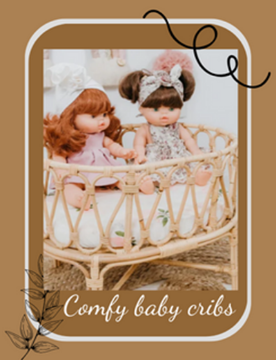
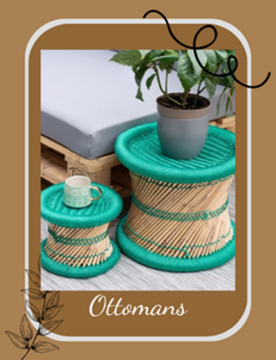
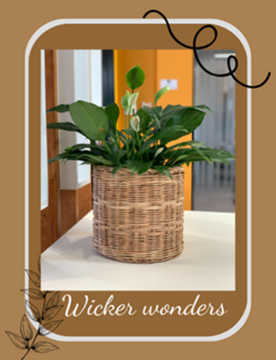

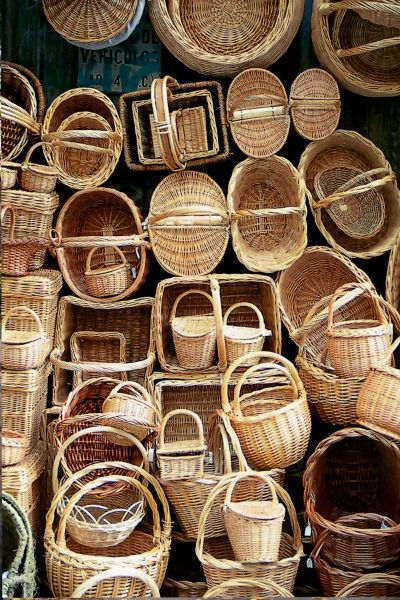






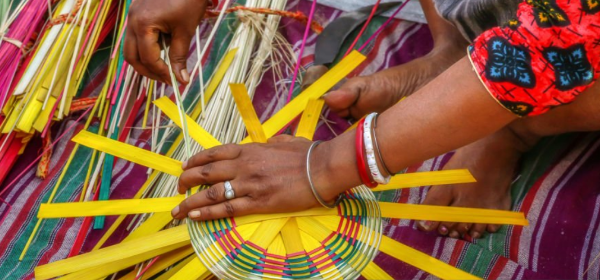



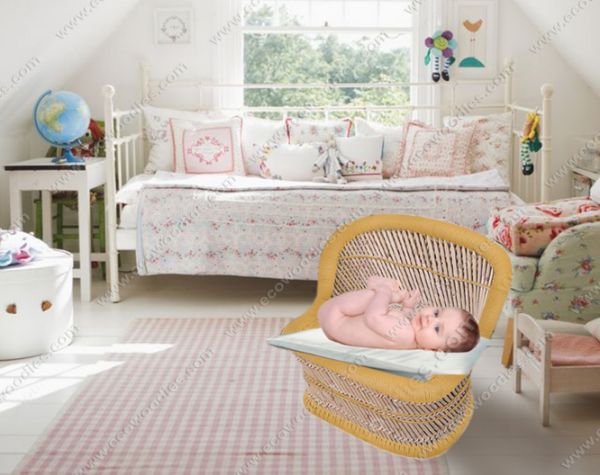







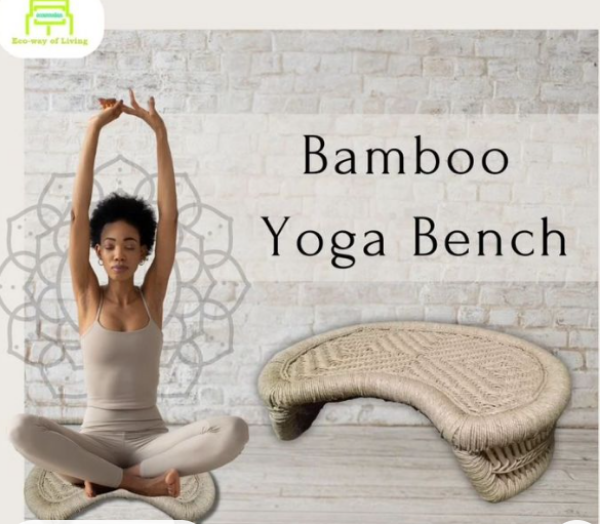




.jpg)
.jpg)






